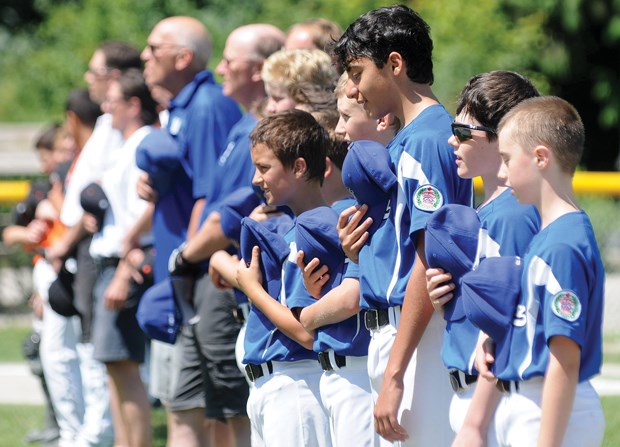It was a beautiful spring day and we were heading off to the zoo with three of my son's friends.
We were going to be celebrating his fifth birthday, which was going to take place in a few days. At the ticket window the cashier asked each of the kids how old they were because kids under five were free. Three of the kids were still four but one was five and proud of it. We paid for his admission price.
In telling the story, I was amazed at the number of my friends who figured we would have had our little five-year-old friend lie and say he was four. I also realized that the cashier expected us to lie so she asked the kids, whom she knew from experience would be honest. What an indictment on parents.
If we want our kids to be honest and learn right from wrong we need to model the behaviour. When they see and hear us lie, that's what they learn. The phone rings and we madly nod "no" to indicate we want the caller to believe we are not available. We phone in sick when we are simply busy with personal activities. And our kids learn that lying, when it's more convenient, is the rule.
Modelling is one way to teach our kids right from wrong but we also need to talk to them about our beliefs. This can be an ongoing conversation whenever an opportunity arises. You might be watching a TV program in which a character lies, manipulates a situation or blatantly breaks a rule. Talk about it. "Why do you think the character acted that way?" "What else could he have done?" There also may be situations in your neighbourhood, on the news or at school that can lead to fruitful conversations.
If you want your kids to follow your example and care about what you think, you want to develop a strong and respectful relationship with them. They are looking to you to understand how relationships work and how to treat others. So, treat your children in a respectful way and ask that they reciprocate Expect your kids to behave in ways that reflect your beliefs about morally acceptable behaviours. Kids who live in a home where they are respected and have seen their parents behave in morally appropriate ways are simply more likely to follow their example.
But, it would be nice the think it's that easy. It isn't. Kids are also busy testing the limits or simply making mistakes.
First you need to follow up your positive modelling behaviours and ongoing conversations by letting your kids know what you expect from them. For example, you may let them know that you expect them to be honest, kind and respectful. And what does that look like? Simply that everyone is expected to tell the truth. We want them to be polite which means no name-calling, putdowns or sarcasm. And we not only speak respectfully, we honour others' privacy and property.
Part of the challenge is to teach our children to understand the perspective of others. They have difficulty understanding why it matters that they are respectful or kind. So we take our conversations with them to the next step. Ask a question such as, "how do you feel when your brother calls you names?" The brother may simply figure he doesn't really mean it and be quite surprised to learn that his sister is upset by the name-calling.
Helping our children develop a conscience is an ongoing activity but for the most part simply means taking advantage of situations as they arise and speak up. Don't assume your children can make the connection between a news story abut a politician who was caught lying and him losing his position. Talk about it.



